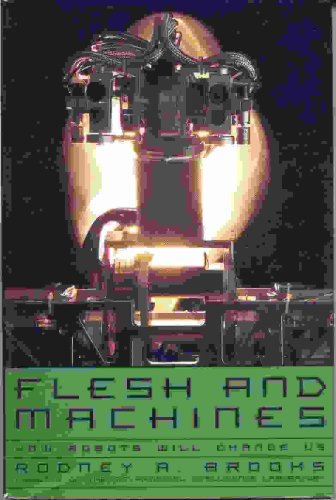Riassunto:
Flesh and Machines explores the startlingly reciprocal connection between humans and their technological brethren, and explains how this relationship is being redefined as humans develop increasingly complex machines. The impetus to build machines that exhibit lifelike behaviors stretches back centuries, but for the last fifteen years much of this work has been done in Rodney Brooks’s laboratory at MIT. His goal is not simply to build machines that are like humans but to alter our perception of the potential capabilities of robots. Our current attitude toward intelligent robots, he asserts, is simply a reflection of our own view of ourselves.
In Flesh and Machines, Brooks challenges that view by suggesting that human nature can be seen to possess the essential characteristics of a machine. Our instinctive rejection of that idea, he believes, is itself a conditioned response: we have programmed ourselves to believe in our “tribal specialness” as proof of our uniqueness.
Provocative, persuasive, compelling, and unprecedented, Flesh and Machines presents a vision of our future and our future selves.
Informazioni sull?autore:
Rodney A. Brooks is Fujitsu Professor of Computer Science and Engineering at MIT and director of the Artificial Intelligence Laboratory. He is also chairman and chief technological officer of iRobot Corporation. He is a founding fellow of the American Association for Artificial Intelligence (AAAI) and a fellow of the American Association for the Advancement of Science (AAAS). The author of several books and a contributor to many journals, he was one of the subjects of Errol Morris’s 1997 documentary, <i>Fast, Cheap, and Out of Control</i>. Brooks was born in Australia and now lives in suburban Boston.
Le informazioni nella sezione "Su questo libro" possono far riferimento a edizioni diverse di questo titolo.
![]()
